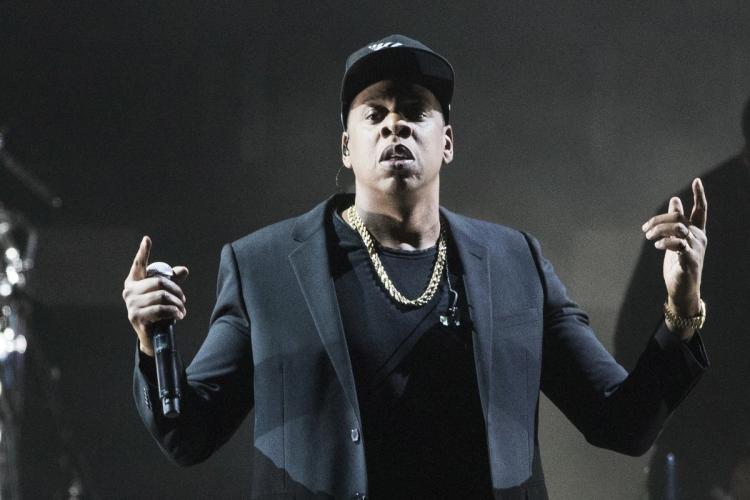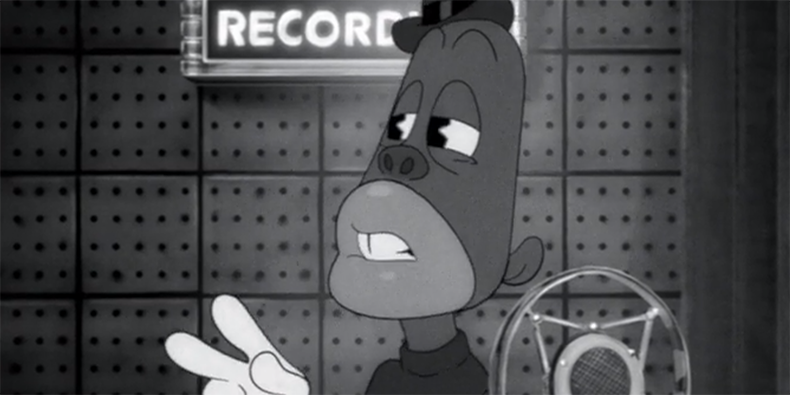By Je’Don Holloway
For the Birmingham Times

Twenty-year rap veteran turned industry tycoon Jay-Z released his 13th studio album, “4:44,” last weekend in true Carter family fashion. His soulful new body of work, exclusive to streaming service Tidal and Sprint, is a concise 10-track album featuring a vulnerable inward look at the megastar’s marriage to fellow megastar Beyoncé, as well as the artist’s soul cry for misguided black America and its materialistic ideals of success and wealth.
Last month, Jay-Z (birth name Shawn Corey Carter) became the first rapper to be inducted to the Songwriters Hall of Fame, joining greats likes Duke Ellington, Ira Gershwin, John Lennon, Elton John, and Lionel Richie. And this month, the fêted artist released an album that serves as a public apology to his wife, an ode to his mistakes as a man, a 2017 “Song Cry”—a Grammy-nominated track from his 2001 “The Blueprint” through which the artist admits his dalliances and exposes his vulnerability.
Jay-Z told iHeart radio that the song “4:44” is the crux of the album and says its arguably one of the best pieces he’s ever written. The “Magna Carta” rapper and his wife have said that the numeral four is not only their favorite number but also symbolic of their wedding anniversary, birthdays, and even their favorite president—Barack Obama, the 44th President of the United States.
He also said he woke up at 4:44 a.m. to write the title track which he says is the root of the album.
Forty-seven-year-old Jay-Z opens “4:44” with a self-inflicted lyrical crucifixion on the first track, “Kill Jay Z.” Denying himself the freedom of a paradoxical poetic escape, he leans in for accountability and moves forward with accepted consequence. Death to the flesh and death to ego, in this musical soliloquy he states, “Die Jay-Z/This ain’t back in the days, you don’t need an alibi, Jay-Z/Cry Jay-Z/We know the pain is real, but you can’t heal what you never reveal,” making way for transparency to allow for healing.
The self-proclaimed “Best Rapper Alive” also uses his newly iconic letter to self, “Kill Jay Z,” to reach out to contentious rapper and fashion designer Kanye West. Referencing West’s infamous November 2016 stage rant, Jay-Z tells his longtime friend that his “F— everybody attitude ain’t natural,” adding, “But you ain’t a Saint, this ain’t KumbaYe/But you got hurt because you did cool by ’Ye/You gave him 20 million without blinkin’/He gave you 20 minutes on stage, f— was he thinkin’?”
Honest Lyrics
And the provocatively honest joints continue.
The controversial track “The Story of O.J.” touches on gentrification in urban cities and provides “million-dollar game” for a mere $9.99 and, consequentially, a new way of acquiring wealth for the rising elite and even drug dealers.
“Take your drug money and buy the neighborhood/That’s how you rinse it/I bought every V12 engine/Wish I could take it back to the beginnin’/I coulda bought a place in Dumbo before it was Dumbo, for like 2 million/That same building today is worth 25 million/Guess how I’m feelin’? Dumbo.”

In the next breath, he explains art appreciation: “I bought some artwork for one million/two years later, that s— worth two million/Few years later, that s— worth 8 million.”
However, be not blinded by the allure. Jay-Z warns listeners that no matter how much wealth he accumulates, his skin color will always remind society that he is a black man.
“Light n—-, dark n—-, faux n—-, real n—-/Rich n—-, poor n—-, house n—-, field n—-/Still n—-, still n—-.”
The animated visuals for “The Story of O.J.” are even more interesting, with re-created caricatures referencing the Sambo character from “The Story of Little Black Sambo,” often used in racist portrayals of black people. The video, which focuses on Jay-Z’s character “Jaybo,” depicts varying slave scenarios in an urban-inspired Sambo world. Most notable of the cartooned characters is the O.J. Simpson coon making his infamous televised remark about his racial identity: “I’m not Black … I’m O.J.”
Couple that with the song “Smile,” Jay-Z’s nod to the LGBTQ community, which inadvertently freed his mother, Gloria Carter, from isolation and a closeted sexuality. Jay-Z says, “Mama had four kids, but she’s a lesbian/Had to pretend so long that she’s a thespian/ … /Cried tears of joy when you fell in love/Don’t matter to me if it’s a him or her.” Gloria Carter ends the track with words of her very own: “Living in the shadow feels like the safe place to be/No harm for them, no harm for me.” The song adds that life is too short to not love openly, because love is freedom and a smile guaranteed.
Iconic Compilation
Jay-Z experimented with remixed music samples from legends including Hannah Williams and the Affirmations; the Alan Parsons Project; Nina Simone; the Clark Sisters; Stevie Wonder; and the Fugees to create his new iconic compilation. Sole “4:44” music producer No I.D. (birth name Dion Wilson) told “Rolling Stone” magazine that this new body of work is all about Shawn Carter opening up and scoring the ultimate soundtrack to his life story. Asked how he selected the classics he retouched for “The Blueprint” rapper, No I.D. told “Rolling Stone” he had Jay-Z make a playlist of his all-time favorite songs, and the magic happened from there.
Album anchor and title track “4:44” thrusts listeners into an audio diary, allowing an unusually lucent glimpse inside the private marital affairs of Jay-Z and Beyoncé, unveiling the Carter tales as theatrically as an old-school radio drama. The track goes as far as Jay-Z admitting to a wild extramarital affair: “What good is a ménage à trois when you have a soul mate?/You risked that for Blue?”
That isn’t the only song mentioning his daughter, 5-year-old Blue Ivy Carter. “Legacy,” a conversation of sorts with his little girl, opens with her small voice asking, “Daddy, what’s a will?” Jay-Z proceeds to answer her question with a list of verbal instructions and ideas for using her inheritance.
“My stake in Roc Nation should go to you/Leave a piece for your siblings to give to their children too/Tidal, the champagne, D’Ussé, I’d like to see/A nice peace-fund ideas from people who look like we/We gon’ start a society within a society/ That’s major, just like the Negro League.”





